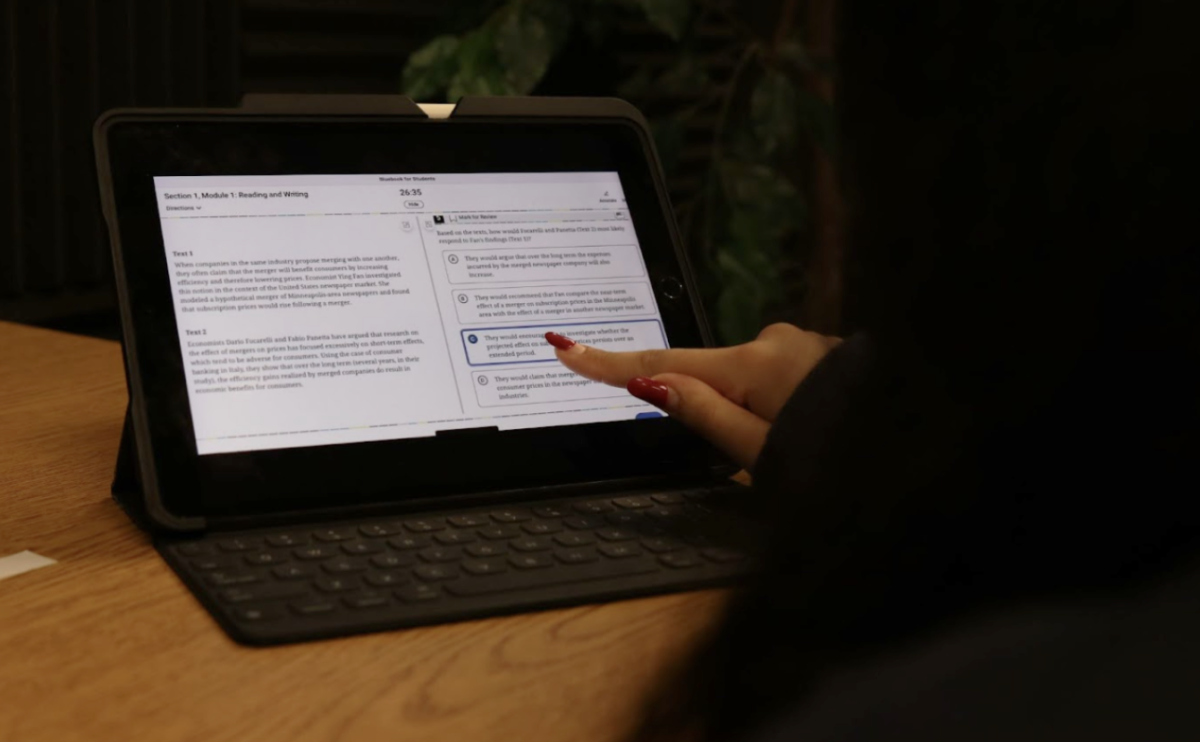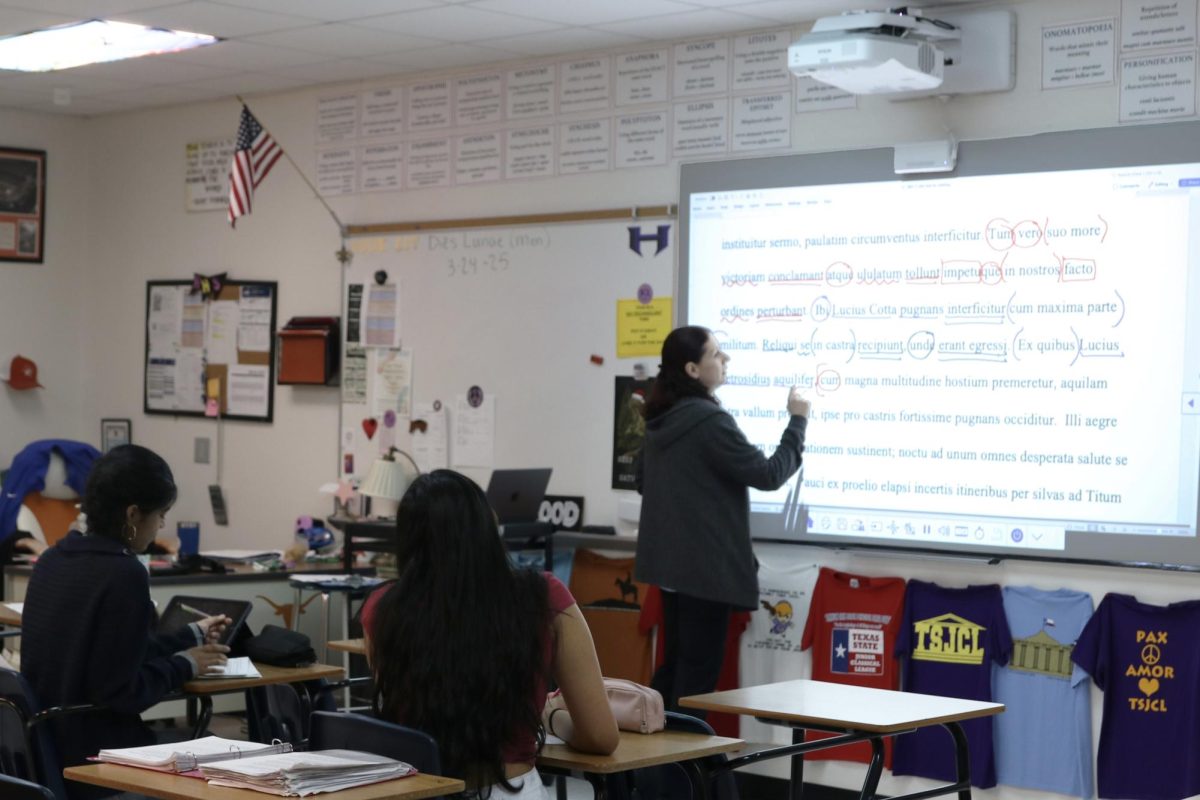Starting this spring, the SAT, PSAT, ACT and seven AP tests will be given digitally. For AP exams, districts were given a choice to administer it online or on paper, and LISD decided on digital testing.
“I feel competent about the administration [side of testing],” testing coordinator Emily Bryson said. “There are all sorts of tools that are easier to provide students online. It’s easier on the staff and the logistics of the day.”
College Board tests will be taken on a software called Bluebook where students will be able to highlight, change the font size and take notes during the test. On the SAT and PSAT, students will be able to use a calculator on the whole math portion and there are only two sections — math and English — instead of the original four: math calculator, math non-calculator, reading and grammar. In addition, the exams will implement “adaptive testing,” which will alter the difficulty of a student’s test questions depending on how successful they are on the early-portions of the test.
“[The test is] going to differentiate students’ strengths and weaknesses,” Bryson said. “That will give us a better range of where people actually are, instead of just [thinking] they are not up there. [This will allow us to] be able to accurately trend everybody.”
The AP exams: Computer Science Principles, English Language and Composition, English Literature and Composition, European History, Seminar, U.S. History and World History: Modern will also be given digitally. Each exam will have the same structure as the paper exam, the only difference will be that it’s online.
“One issue that I’ve always had with my AP exams is when I’m writing [document-based questions] and [free response questions] my hand gets tired and cramps a lot,” junior Krrish Jagatap said. “I know other people that have had issues with that, [and] typing is going to make it a lot easier to be able to write, and you’ll be able to get all your points down. It will definitely benefit [the] students.”
Although there are benefits to the test becoming digital, AP English teacher Jeanette Rooks said she worries about the potential downsides of the changes.
“My concern about the online [tests] is that [students] will skim over things,” Rooks said. “We don’t proofread as carefully and don’t pause as much as we do when handwriting. I actually worry a little bit about clarity getting lost in essays.”
The Bluebook app has been downloaded on all iPads so students can use their school issued device on test day. The ACT will be given on a software called TestNav.
“I think a lot of people feel the digital version of things mirrors the way the world is going; like if you have a job and you have to do a certification exam, it’s probably going to be online,” Rooks said. “I think it’s about trying to prepare our kids to be ready for the world.”
One reason the school chose to go digital was because of fewer materials being needed. According to College Board, there will be more test security and less paper. There is also a smaller chance for tests to get lost because they will be sent straight to the testing administrators.
“We are kind of learning [the digital testing] with the kids and hoping to prepare them,” Rooks said. “[We are] hoping to be just one step ahead of [the students], so we can prepare them for [the test].”











